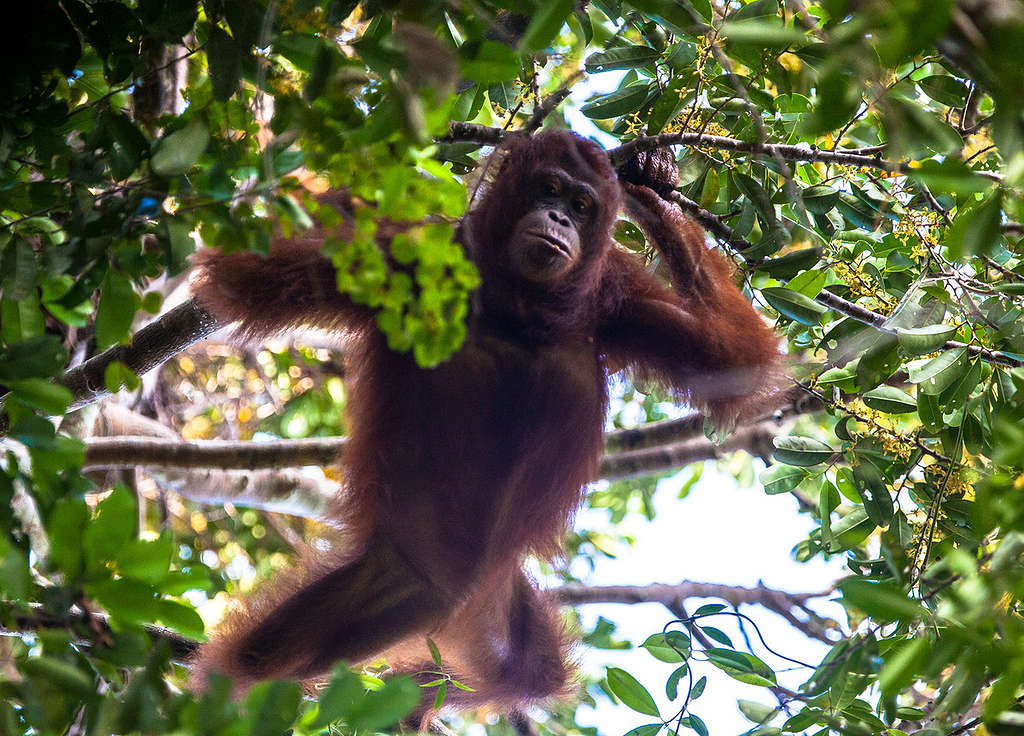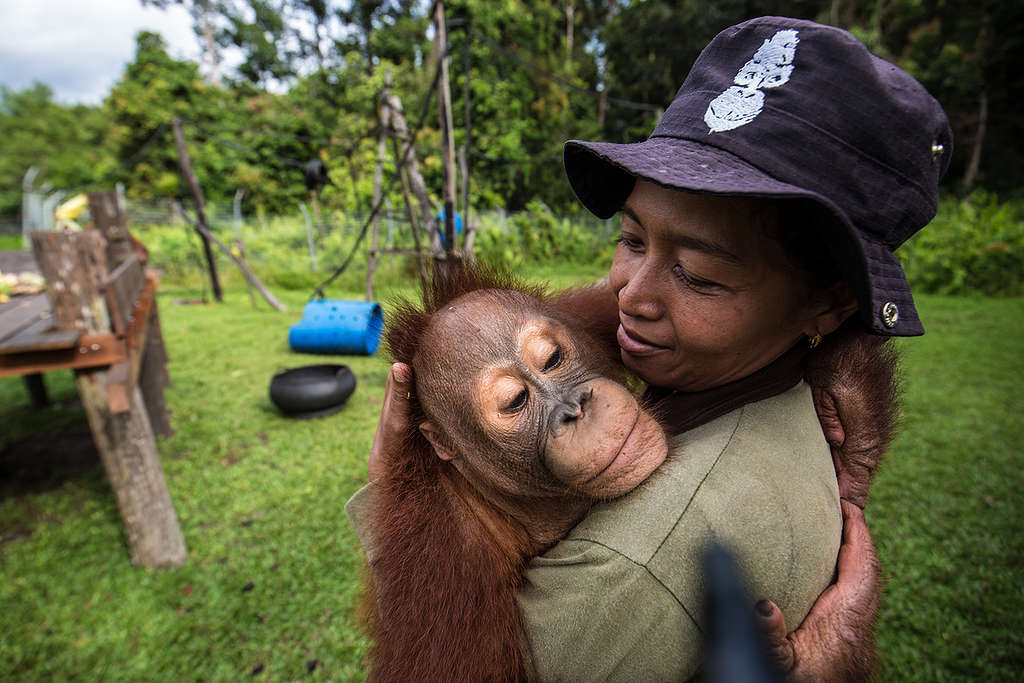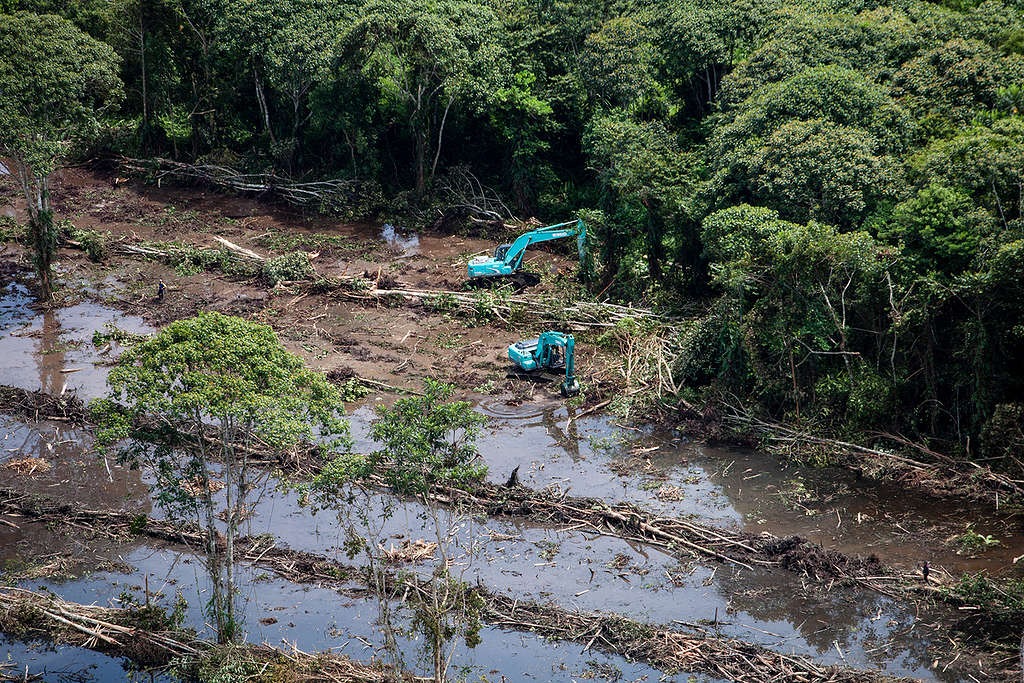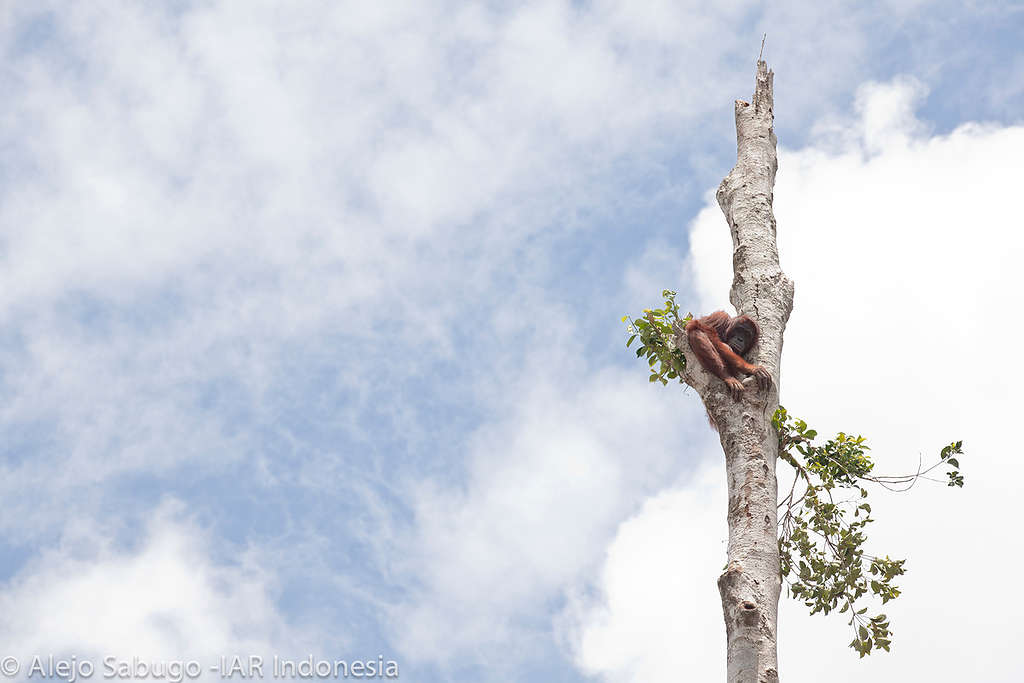The first time I saw an orangutan in real life, I nearly peed with fright. I heard a great commotion in the trees above me and there he was, swinging through the branches, his huge plate-shaped face staring down at me.

It was a terrifying experience, which is just how it should be. These creatures are wild animals and our lives were never supposed to become so closely entwined with theirs. As I stood, rooted to the spot, he came lower to get a better look. His expression was so human-like I felt he could have begun talking at any moment. If he had, I’m quite sure he would have said, “Well done. No really, the mess you’ve created is quite incredible… and you guys are supposed to be the intelligent ones.”
We met – this orange-haired, long-armed character and me – in a sanctuary in Kalimantan. So our encounter wasn’t how it should have been at all. Sanctuaries are where the lucky ones end up, but it’s far from ideal. They’re limited to an area of forest too small for their usual range, reduced to relying on humans to survive. But it’s a thousand times better than the treeless wasteland they’re most often rescued from.
Orangutans on the brink of extinction
Natural rainforest, the primary habitat of orangutans, is being destroyed throughout Indonesia and replaced with oil palms by greedy plantation companies. Their fruits are harvested to make cheap vegetable oil that ends up in over half the products on our supermarket shelves.
Rescued orangutans, robbed of their home, their independence, and frequently their family, are cared for by the most remarkably dedicated of people but resources are slim. Sanctuaries are overcrowded and rescues are stressful and upsetting for all concerned.

For each animal that survives, many more die. Rescue work is vital but it’s a last resort and a losing battle unless the problem is tackled at the source. There are no two ways about it – if we want to save orangutans from extinction we need to save their home.
Palm oil can be made without destroying rainforests
Greenpeace is working hard to make brands clean up their palm oil supply chains. By forcing big brands to buy palm oil only from companies that can prove they’ve no links to deforestation, we can finally create lasting change within the industry.
Brands must take responsibility
Nearly a decade ago, some of the biggest brands on the planet, including Unilever, Nestle and Mondelez (now parent company of Cadbury’s), among others, promised to end their part in tropical deforestation by 2020. Now, they have less than 500 days left to make that promise a reality.
Despite now having ‘no deforestation’ policies, which is a huge step forward from a decade ago, no large company has managed to reject suppliers still guilty of producing ‘dirty’ palm oil (by which we mean oil grown on newly deforested land).

What they’ve done instead, is to rely on the Roundtable on Sustainable Palm Oil (RSPO), an industry body responsible for certifying the ‘clean’ stuff. But time and time again the RSPO has been exposed for turning a blind eye to producers and traders breaking the rules.
In June, Greenpeace linked the world’s largest palm oil trader, Wilmar, an RSPO board member and supplier to all the brands named above, to the destruction of rainforest totalling twice the size of Paris. This can’t go on.
Forests are the lungs of the planet
In the last 16 years, 100,000 orangutans have died mainly due to deforestation. Some are shot dead by frightened farmers after straying out of the drastically diminished forest on to agricultural land. Others starve due to loss of habitat, fall as the tree they’re clinging to is bulldozed to the ground, or suffocate and burn in forest fires deliberately started to clear land for planting.

As well as orangutans, Sumatran tigers, rhinos and elephants have all dramatically declined. And people are suffering too. Conflict over land is causing violence, human rights abuses are rife and Indigenous Peoples are losing their homes. In the last 25 years a forest area the size of the UK has been lost in Indonesia. This undermines all our efforts to tackle climate change and affects us all.
For too long, big brands and the palm oil companies they buy from have been getting away with murder – I mean that quite literally. And for too long our response to orangutans has been, ‘ohhh, the poor things’ as we’re shown photographs of them orphaned, thin and at death’s door. But change is possible – we can make it so.
Watch Rang-tan
When Greenpeace asked me to narrate a new short film – an animation designed to underline the problem and highlight the power we all have to help our ginger-haired cousins – I didn’t hesitate. It’s just the start of a new global campaign to tackle this problem once and for all.
500 days may not seem long but my hope is that by collectively making a noise, demanding answers and forcing change, we can stop feeling sorry for these beautiful creatures. Instead, we can feel that exhilarating mixture of fear and fascination as witnesses of these iconic beasts living truly wild once more.
Emma Thompson is an Oscar-winning actor, activist and screenwriter from London, United Kingdom
Guest authors work with Greenpeace International to share their personal experiences and perspectives and are responsible for their own content.
